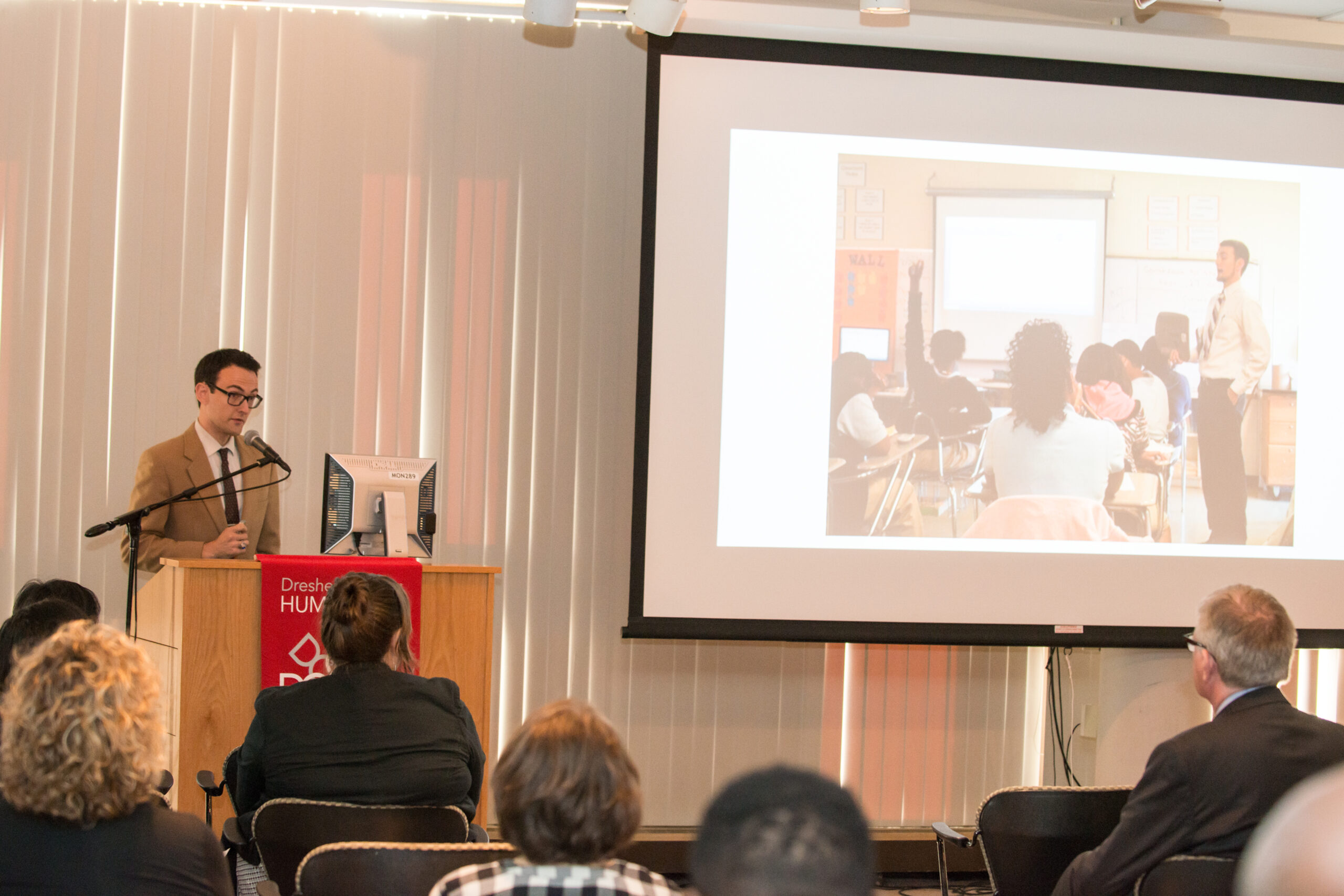As students and families are preparing to start the new school year, new research demonstrates that certain school discipline laws may increase racial disparities and suspension rates for minority students and do little to improve the safety and order of schools.
The research, published in Educational Evaluation and Policy Analysis by F. Chris Curran, assistant professor of public policy at UMBC, finds that state mandatory expulsion laws—which mandate expulsion for offenses such as weapons or assault—have led to increased suspensions for all students, but at a much higher rate for Black and Hispanic students than for White students.
Curran wrote about his findings in an article published in The Conversation on July 24. He examined national data collected by the U.S. Department of Education as part of the Civil Rights Data Collection and the Schools and Staffing Survey, and through further research determined several key findings.
“First, the study showed that state laws requiring schools to have zero tolerance policies increased suspension rates for all students. Second, suspension rates increased at a higher rate for African-American students, potentially contributing to racial disparities in discipline. Finally, principals reported few decreases in problem behaviors in schools, suggesting that the laws did not improve the safety and order of schools,” Curran explains in his article.
The research is timely, as states like Michigan are considering passing legislation to curtail zero tolerance discipline policies in public schools. Curran anticipates that states beginning to move away from zero tolerance policies will have an overall positive impact on the education environment.
“Clearly, such zero tolerance laws were meant to improve the safety and order of the school environment,” Curran writes in The Conversation. “However, in recent years, they have been seen as being overly prescriptive and as contributing to racial disparities in school discipline.”
Through his research, Curran also found that zero tolerance laws can have a significant negative impact on the learning environment for all students.
“Principals report few decreases in problem behaviors such as fighting, drug use, or disrespect as a result of these laws,” says Curran.
This suggests that state zero tolerance laws may be resulting in more students, particularly students of color, being excluded from the learning environment while failing to improve the school setting for those students who remain.
More on this research can be found in Curran’s recently published article “Estimating the Effect of State Zero Tolerance Laws on Exclusionary Discipline, Racial Discipline Gaps, and Student Behavior.” Read “Zero tolerance laws increase suspension rates for black students,” in The Conversation.
Professor Curran joined UMBC’s School of Public Policy in August 2015. His research focuses on education policy, early childhood education, school discipline and safety, teacher labor markets, and the politics of education. Last year, he published a Baltimore Sun op-ed about educational opportunity in Baltimore and a column about teacher overtime policy in Education Week. He also recently launched a website with Ann Kellogg, a Ph.D. student in public policy, to track public sentiment on the Every Student Succeeds Act (ESSA).
Image: Chris Curran presents talk at UMBC about his research. Photo by Marlayna Demond ’11 for UMBC.
Tags: CAHSS, Education, PublicPolicy, Research

